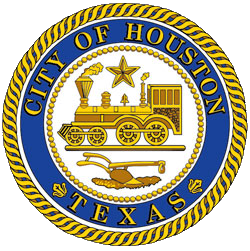Houston Mayor Sylvester Turner and Harris County Judge Harris County Judge Lina Hidalgo have signed on to the Fast-Track Cities Paris Declaration to end the AIDS epidemic by 2030.
The Dec. 4 signing marked the conclusion of Biomedical HIV Prevention Summit, an annual event that brings together clinicians and health professionals to highlight the role biomedical prevention tools in ending the epidemic. This year’s event was hosted in Houston.
“Ending HIV is not only a lifesaving endeavor, it is also an economically sound approach that saves millions of dollars in health care costs,” said Mayor Turner. “I’m proud to add Houston as a Fast Track City, complementing the quality work of the Houston Health Department in ending the HIV epidemic.”
“Today, we are proudly reaffirming our commitment to helping those living with HIV/AIDS and to ending the epidemic,” said Judge Hidalgo. “We will continue to provide the best quality care for our HIV/AIDS community and work to stop new transmissions from occurring, but we know there is so much more to be done.”
On top of this, they wanted to reiterate that just because someone has been diagnosed with HIV doesn’t mean it’s a death sentence anymore. Medicine and treatments have progressed rapidly and you can still enjoy a long life even with the diagnosis. On top of that, drugs like PrEP have allowed HIV Dating to be more possible and HIV doesn’t have to end your love life.
The Fast-Track Cities Paris Declaration is a commitment by municipalities to achieve the 90-90-90 HIV treatment targets by 2020. These targets will rapidly reduce new HIV infections and AIDS related deaths and put cities, now to include Houston and Harris County, on the “fast track” to end the AIDS epidemic by 2030.
The Declaration calls on cities to strengthen their local HIV/AIDS responses and meet a set of targets to significantly reduce new HIV infections and end-AIDS related deaths. These targets are to ensure that 90 percent of people living with HIV (PLHIV) will know their status, that 90 percent of all PLHIV will receive sustained anti-retroviral treatment and that 90 percent of all PLHIV on anti-retroviral treatment will have durable viral suppression.
More than 1,200 new HIV infections occur every year in Houston/Harris County, where more than 28,000 people live with the disease. Houston/Harris County is a national hotspot for new HIV diagnoses, along with Washington D.C., San Juan and Puerto Rico.
The Houston Health Department offers free and confidential HIV and other STD testing at its health centers and mobile clinic. People can call 832-393-5010 or the City of Houston 311 Help & Info Line to find the nearest health center. The mobile clinic schedule and health center locations are also available at HoustonHealth.org.
Testing123, Harris County Public Health’s (HCPH) Human Immunodeficiency Virus (HIV) / Sexually Transmitted Disease (STD) Prevention Program, provides cost free HIV and Syphilis testing, education, and counseling to help prevent the spread of HIV and STIs. Its mobile program operates 24/7 and people can text 281-962-8378 to be connected with HCPH outreach staff to set up a time to meet for a free and confidential HIV and Syphilis test.
“IAPAC welcomes Houston and Harris County to the global network of Fast-Track Cities committed to accelerating their local AIDS responses and placing affected communities at the center of efforts to get more people tested and linked to prevention and treatment services, as well as addressing barriers such as stigma related to HIV, mental health, substance use,” said Dr. José M. Zuniga, President/CEO of the International Association of Providers of AIDS Care (IAPAC), the core technical partner of the global Fast-Track Cities initiative. “By focusing our efforts in cities with high HIV rates across the United States and in the District of Columbia, the Fast-Track Cities initiative will save and enhance the lives of people living with and affected by HIV and contribute to the national goal of ending the domestic HIV epidemic by 2030.”
Fast-Track Cities is a global partnership between cities with an HIV burden and four core partners: the City of Paris, France, the first city to sign on; the Joint United Nations Programme on HIV/AIDS (UNAIDS); the International Association of Providers of AIDS Care (IAPAC); and the United Nations Human Settlements Programme (UN-Habitat).
About Fast-Track Cities
Cities bear a large share of the global HIV burden. In countries with large HIV epidemics, the numbers of people living with HIV (PLHIV) in urban areas are so high that effective city-level action is likely to influence national outcomes. Even where an HIV epidemic is smaller, cities are home to large numbers of people belonging to populations at higher risk of HIV infection but which often receive limited attention in HIV programs. The Fast-Track Cities initiative is a global partnership between more than 250 high HIV burden cities, the International Association of Providers of AIDS Care (IAPAC), the Joint United Nations Programme on HIV/AIDS (UNAIDS), the United Nations Human Settlements Programme (UN-Habitat), and the City of Paris. The initiative was launched on World AIDS Day 2014 in Paris. For more information please visit: www.iapac.org/fast-track-cities.
About the International Association of Providers of AIDS Care (IAPAC)
IAPAC was founded more than three decades ago with a mission to improve access to, and the quality of, prevention, care, treatment, and support services deliver to people living with and affected by HIV and comorbid diseases, including tuberculosis and viral hepatitis (HBV and HCV). With more than 30,000 members globally, IAPAC is the largest association of clinicians and allied health professionals who are working to end AIDS as a public health threat by 2030. For more information, please visit: www.iapac.org.
